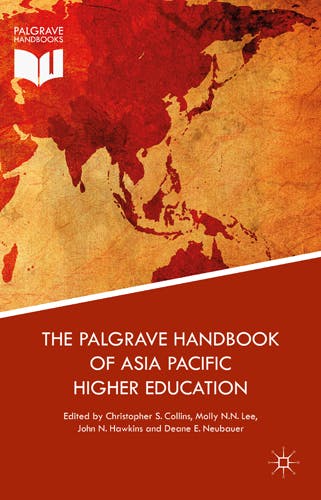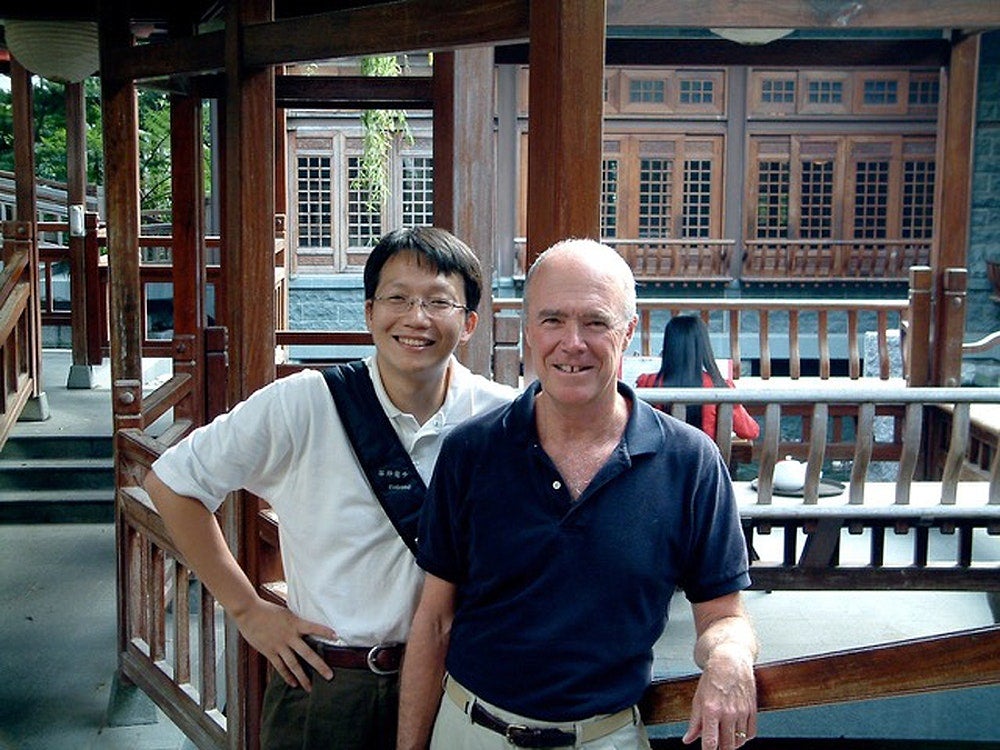John N. Hawkins, UCLA professor emeritus of education, has recently published “The Palgrave Handbook of Asia Pacific Higher Education” (New York: Palgrave Macmillan, 2016. Hawkins, who co-directs the Asian Pacific Higher Education Research Partnership (APHERP), co-edited the volume with APHERP colleagues Dean E. Neubauer, co-director; Christopher Collins, associate director; and Molly N.N. Lee, former Programme Specialist in Higher Education at UNESCO. Collins is an assistant professor of higher education at Azusa Pacific University and a Ph.D. graduate of UCLA’s Division of Higher Education and Organizational Change (HEOC). Other UCLA alumni have also contributed to the book, including W. James Jacob, professor, International Higher Education University of Pittsburgh; Yuto Kitamura, associate professor, Graduate School of Education, University of Tokyo; Reiko Yamada, professor, Faculty of Social Studies and director of the Center for Learning Support at Doshisha University; and Sheng Yao Cheng, professor, Graduate Institute of Education, National Chung Cheng University, Taiwan.

The handbook covers four critical themes of Asian Higher Education in a globalized world: the impact of contemporary globalization; the forces of regionality; access, equity, capacity, and quality; and country case studies of China, Malaysia, Philippines, Thailand, India, Singapore, Indonesia, Australia, New Zealand, ASEAN, South Korea, Vietnam, and Kazakhstan.
Hawkins, who teaches Social Sciences & Comparative Education at UCLA Education, says that there has been a significant expansion of higher education in Asia in the last 15 years.
“With China’s decision to reform and open its higher education system to significant expansion in 1998, a process was initiated unlike any previously seen,” he says. “The higher education system was expanded for new millions of students utilizing resources from both private and public sectors. The same can be witnessed in India and Indonesia, where even a small percentage rise in the gross enrollment ratio to higher education would result in huge numbers of students admitted into the higher education systems because of the large population base. Previous decades had witnessed similar growth in Korea, Japan, and Taiwan as those societies also provided significant resources to radically expand access to higher education.”
Hawkins notes that this accelerated growth of higher education in the Asian region has triggered a significant amount of new scholarship.
“The forces of massification, more open access, policies to expand equity, alongside more traditional concerns about elite status, high rankings, and the quest for world-class university status characterized the growth and development of higher education across the region,” he says. “The publication of a Handbook on Asian higher education at this time is particularly significant as the region enters a period of post-globalization development and rising nationalism.”
Hawkins says that many academics, business analysts, and policy makers of the Asia Pacific region have concluded that because of its early commitment to a first-rate educational system, “Asia has reached the level of global economic dominance that it has over the past two decades. For example, China has now surpassed the U.S. as the world’s largest economy in terms of GDP.
“The future growth and success of this dynamic region will hinge on the degree to which the countries in Asia and the Pacific are able to continue to develop and grow both the capacity and quality of their higher educational systems,” says Hawkins. “And the outlook for the future continues a pattern of steady economic growth. My co-editors and I believe the thematic and country case study approach of the handbook, combined with the assembling of the top experts in the region to provide analytical insights into current and future developments in Asian higher education, make this a particularly timely and valuable research and reference tool.”
Above: UCLA professor emeritus of education John N. Hawkins (at right), with UCLA Ed alumnus Sheng Yao Cheng, professor, Graduate Institute of Education, National Chung Cheng University, Taiwan. Cheng is a contributor to Hawkins’ new co-edited volume, “The Palgrave Handbook of Asia Pacific Higher Education.”
Courtesy of John N. Hawkins
